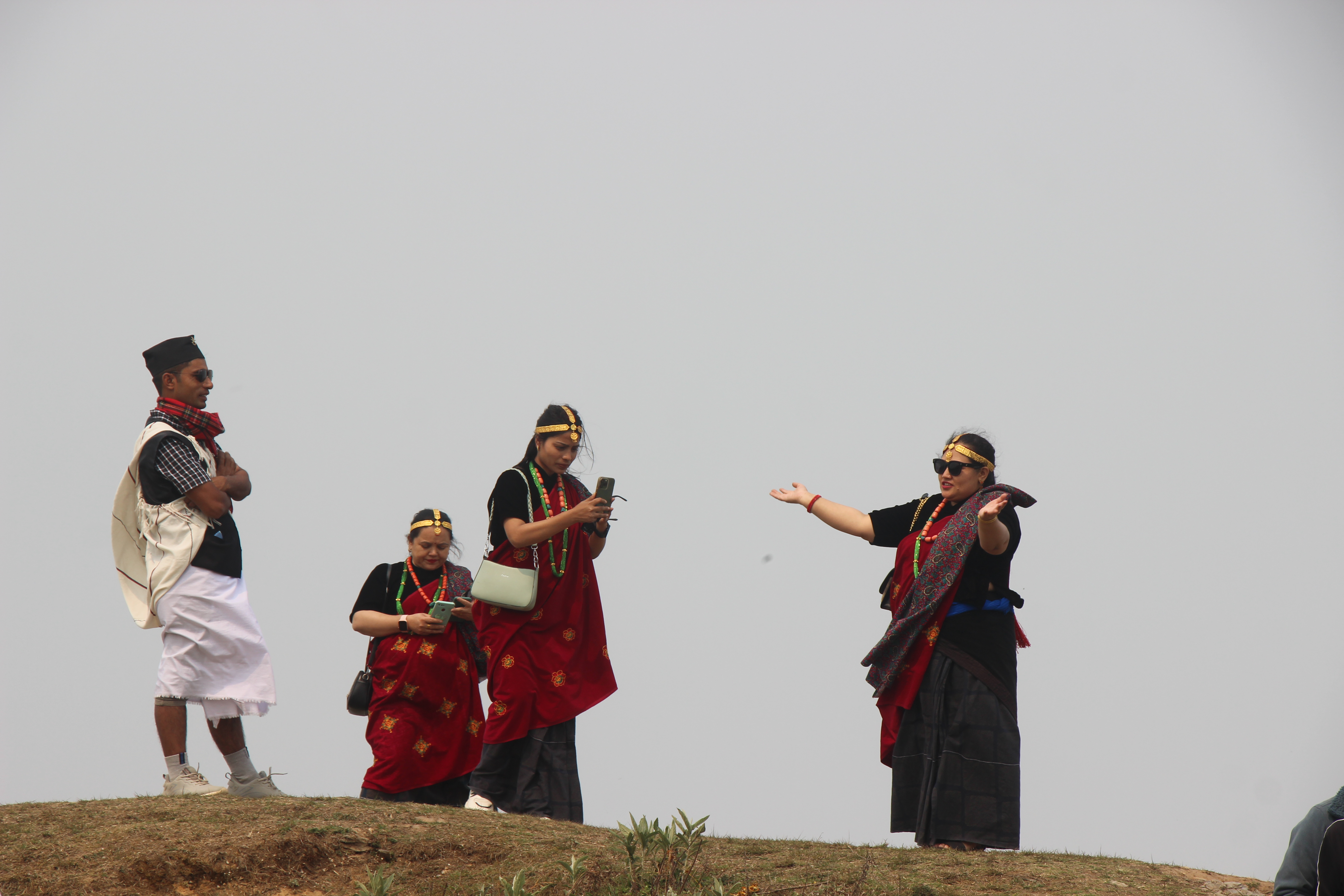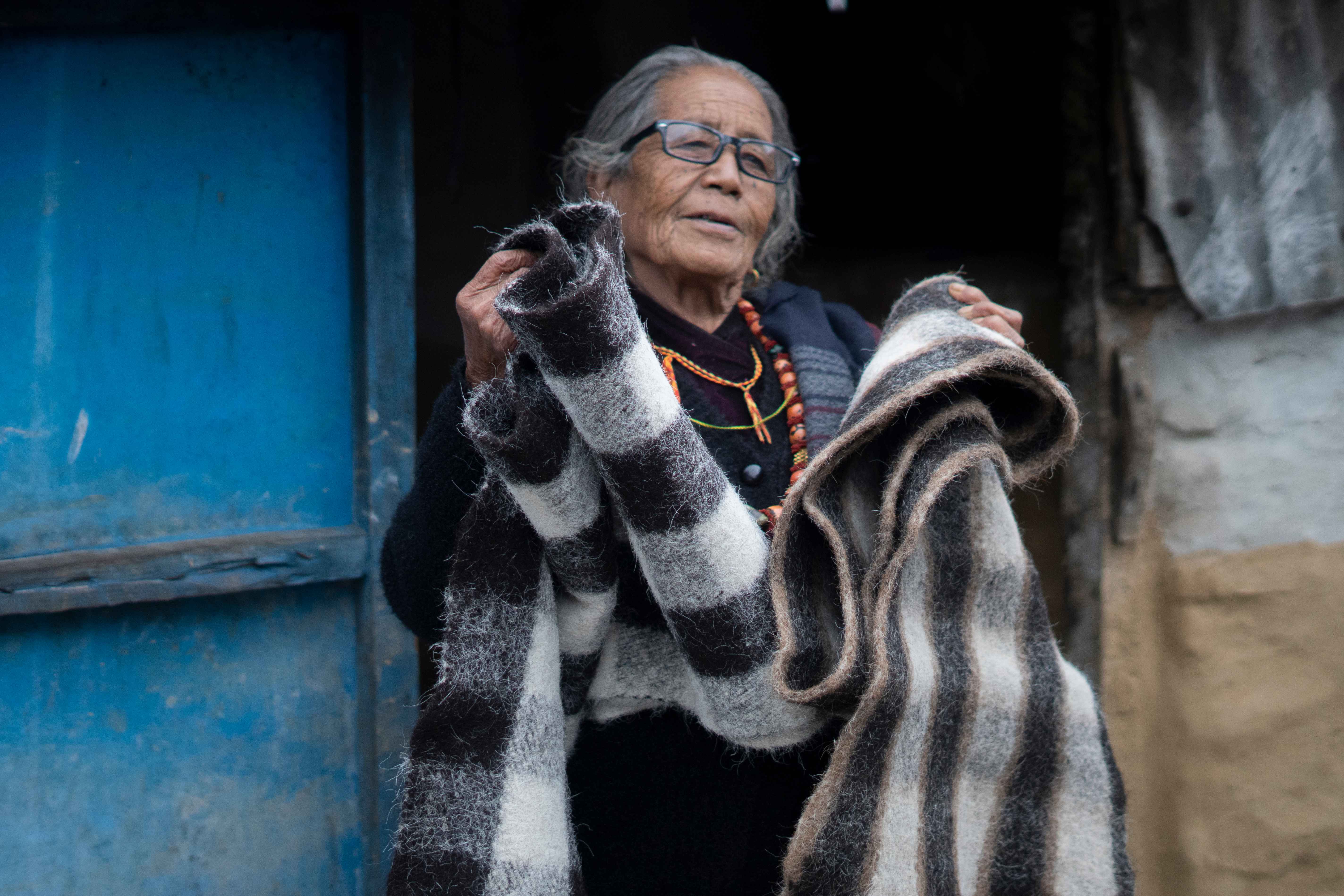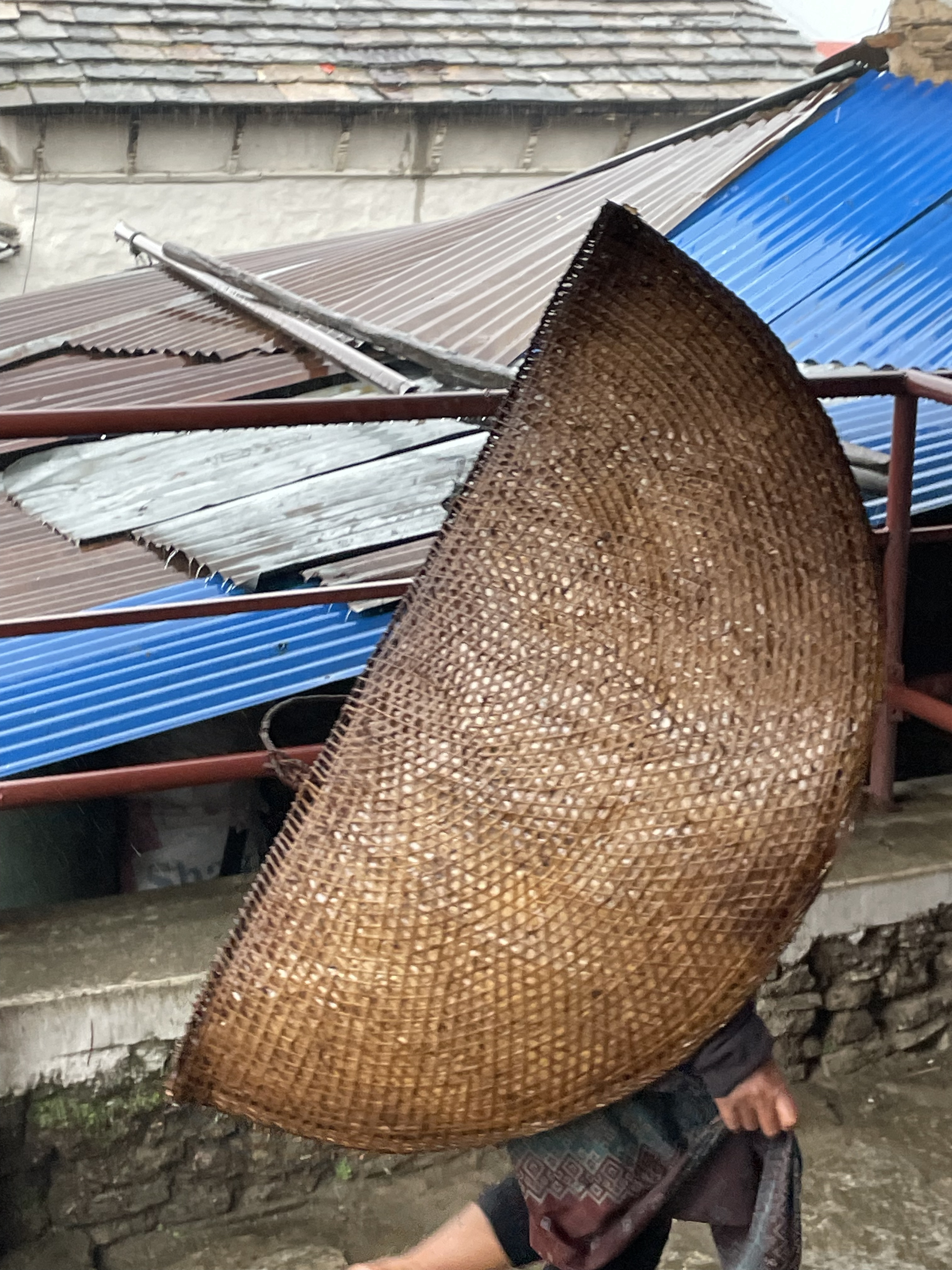Our Culture
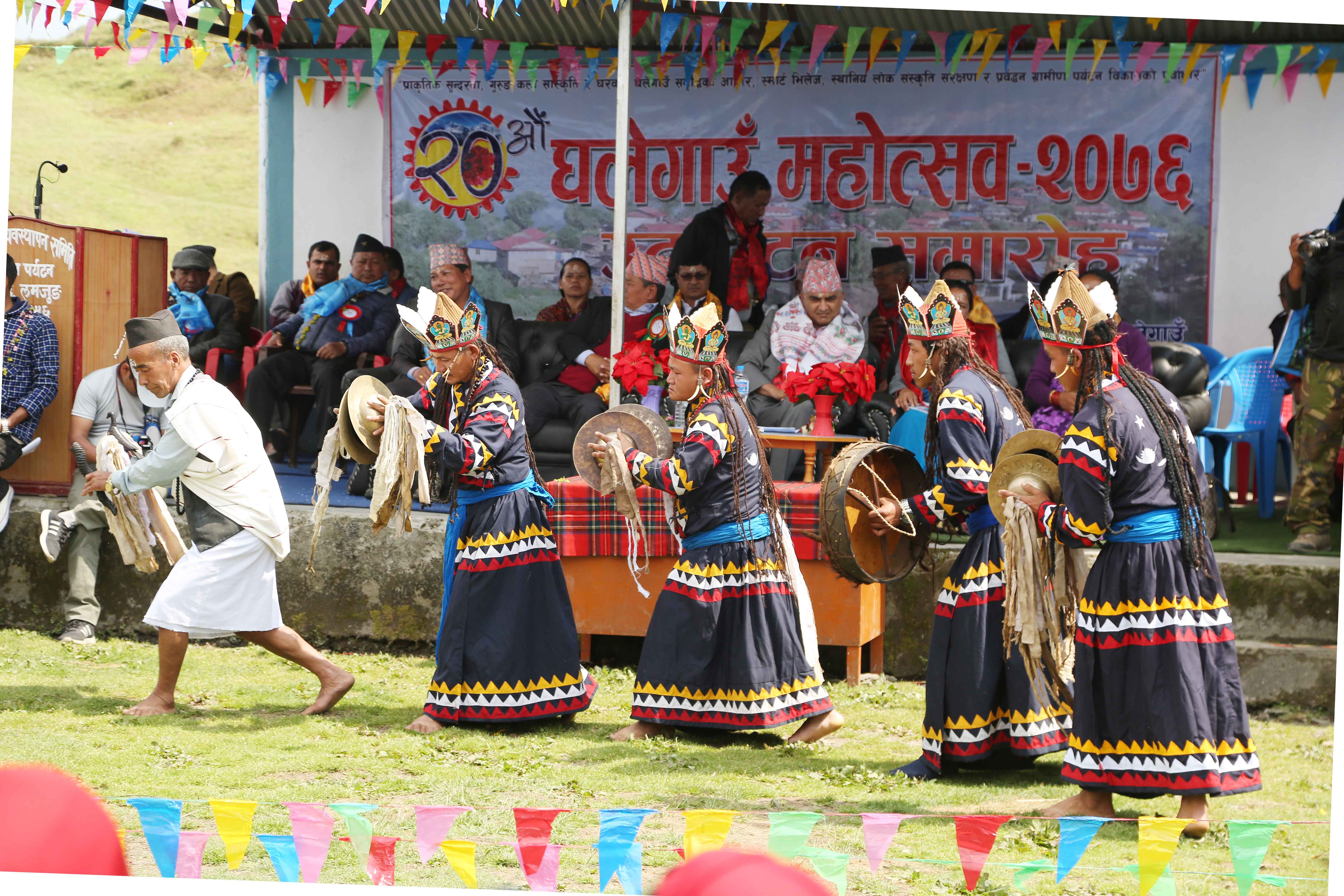
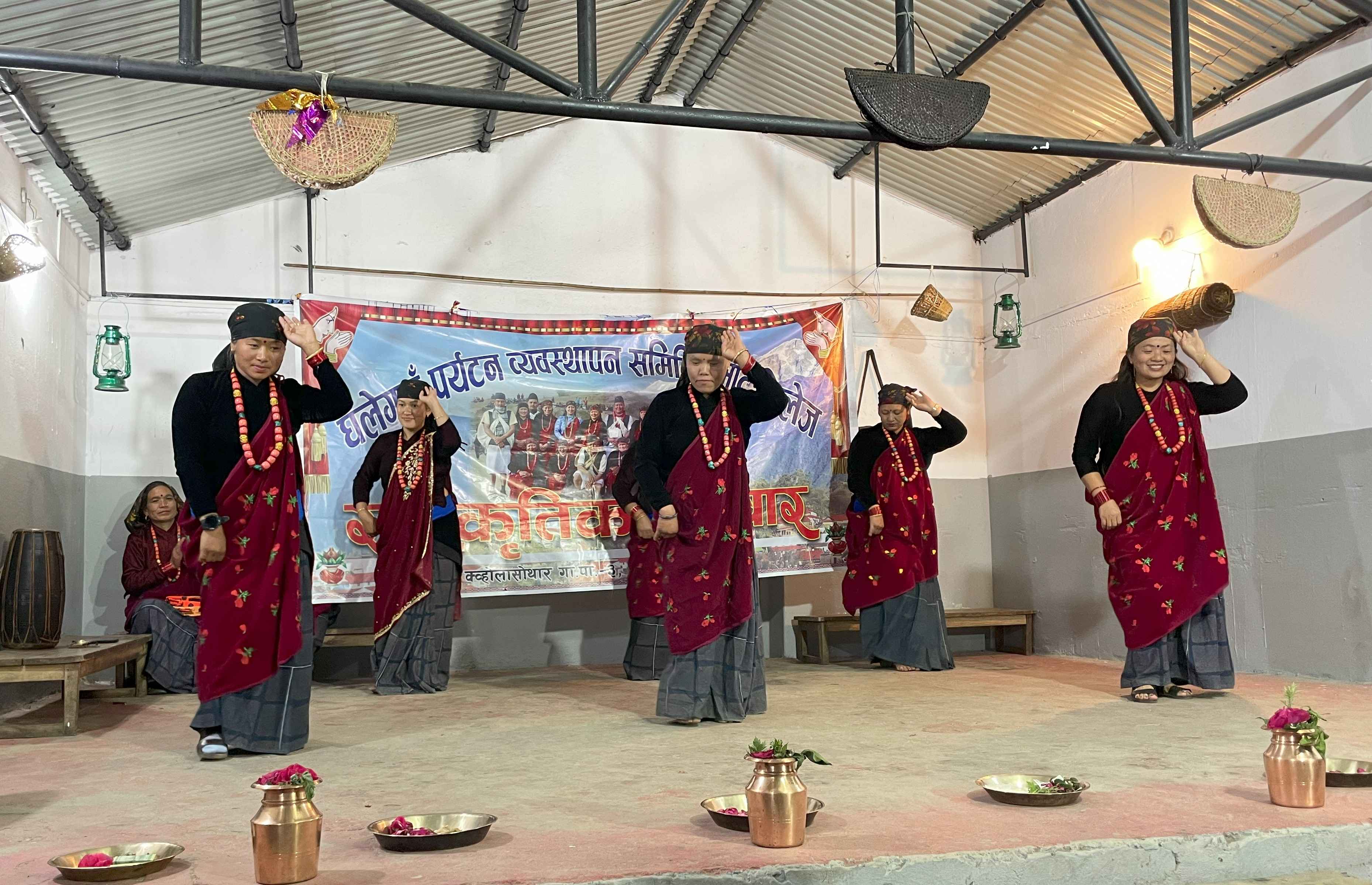
Cultural Dances
Nepalis love to dance and the Gurung are no exception. The Ghalegaun Dance Group performs a number of traditional dances.
Rodhi Nach: A traditional Gurung dance with songs representing the joy and sorrow of daily life.
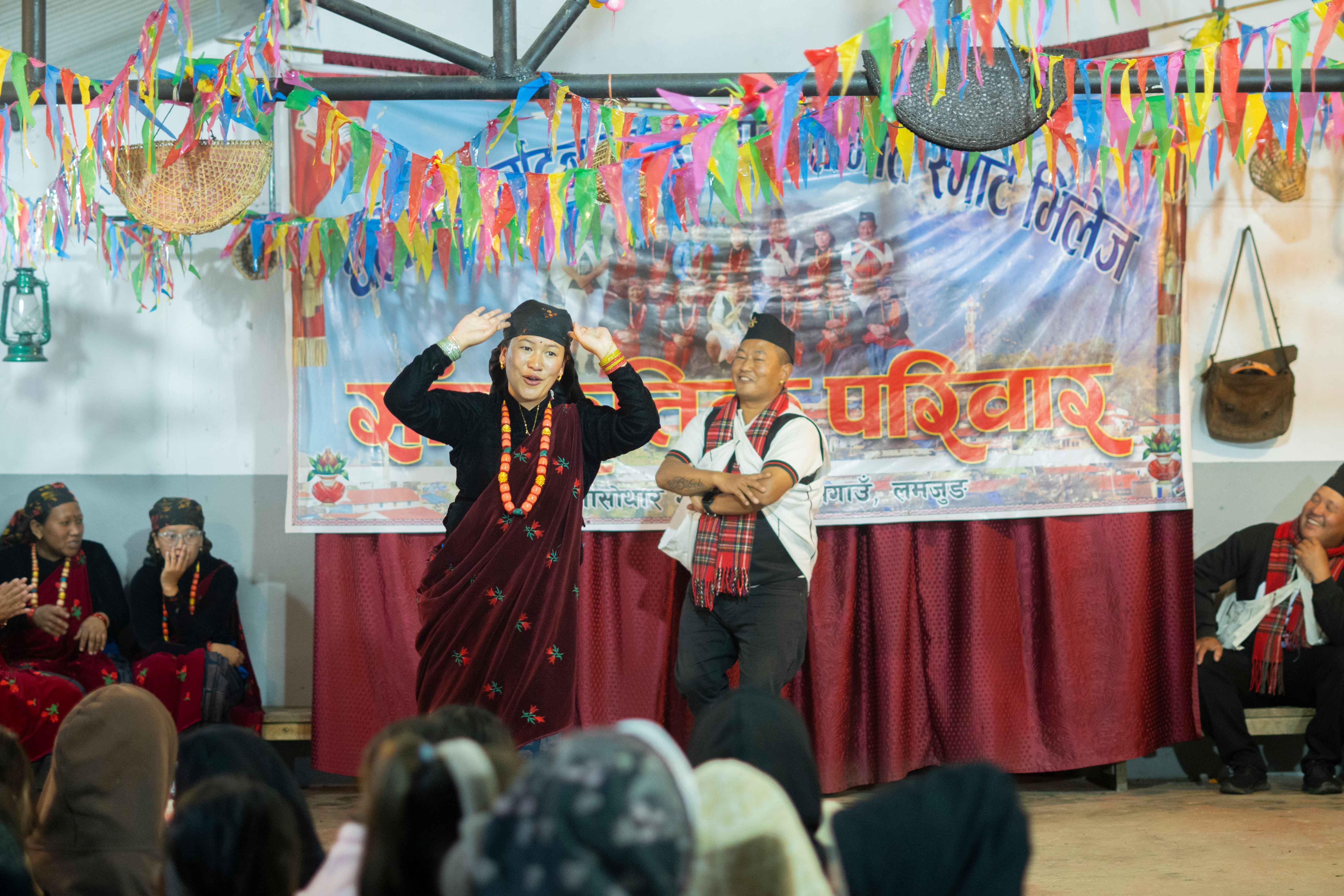
Ghatu Nach: A traditional women’s dance performed in pairs and during the full moon of Baisakh.
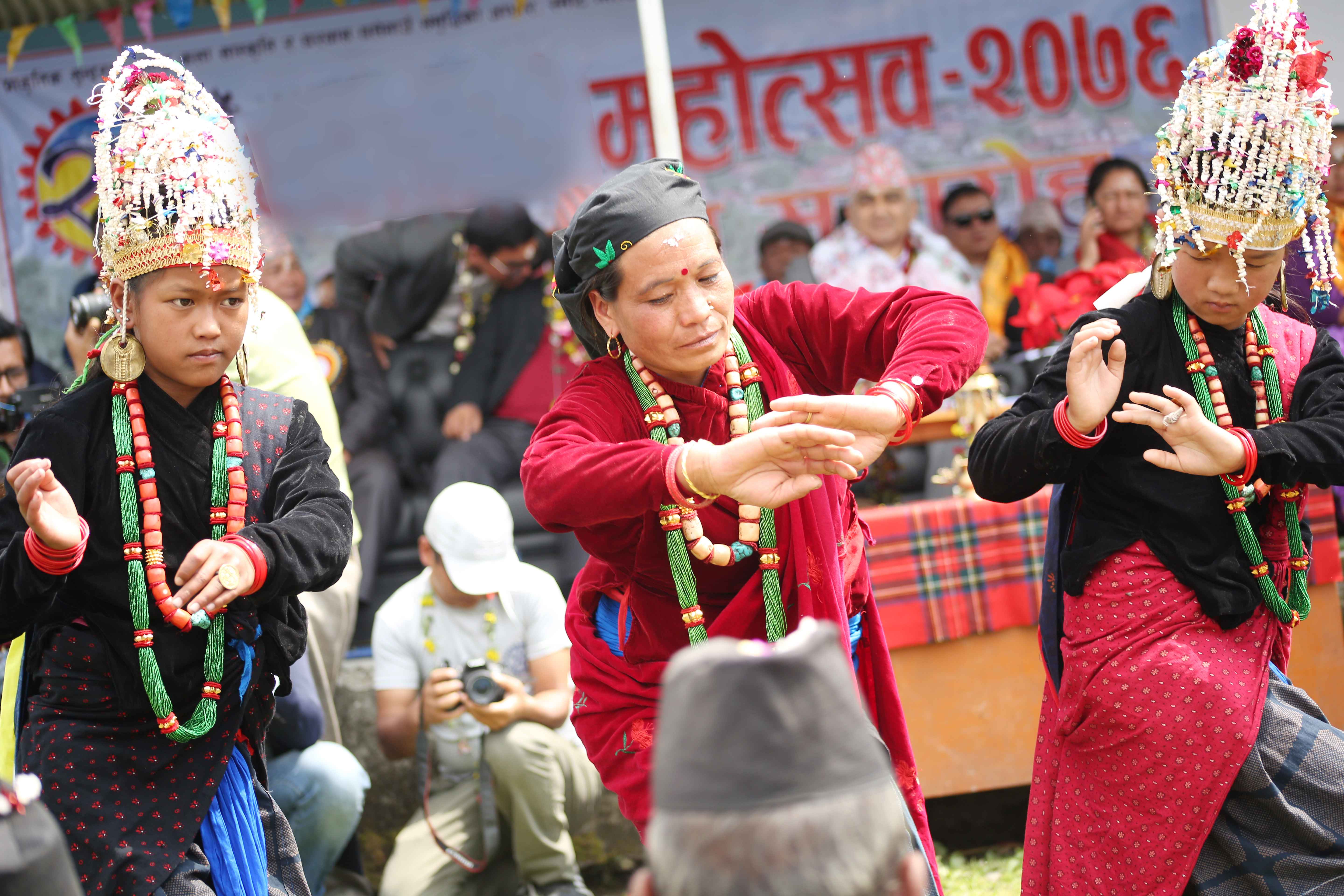
Krishna Charitra Nach: A traditional Gurung folk dance performed to bless the eldest son by his maternal uncle’s family. The dance honors the life of the God Krishna.
Serka Nach: A traditional Gurung dance performed to announce a death to villagers and neighboring villages. The Gurung believe that the dance and the playing of the thaudu (drum) will send the deceased to heaven.
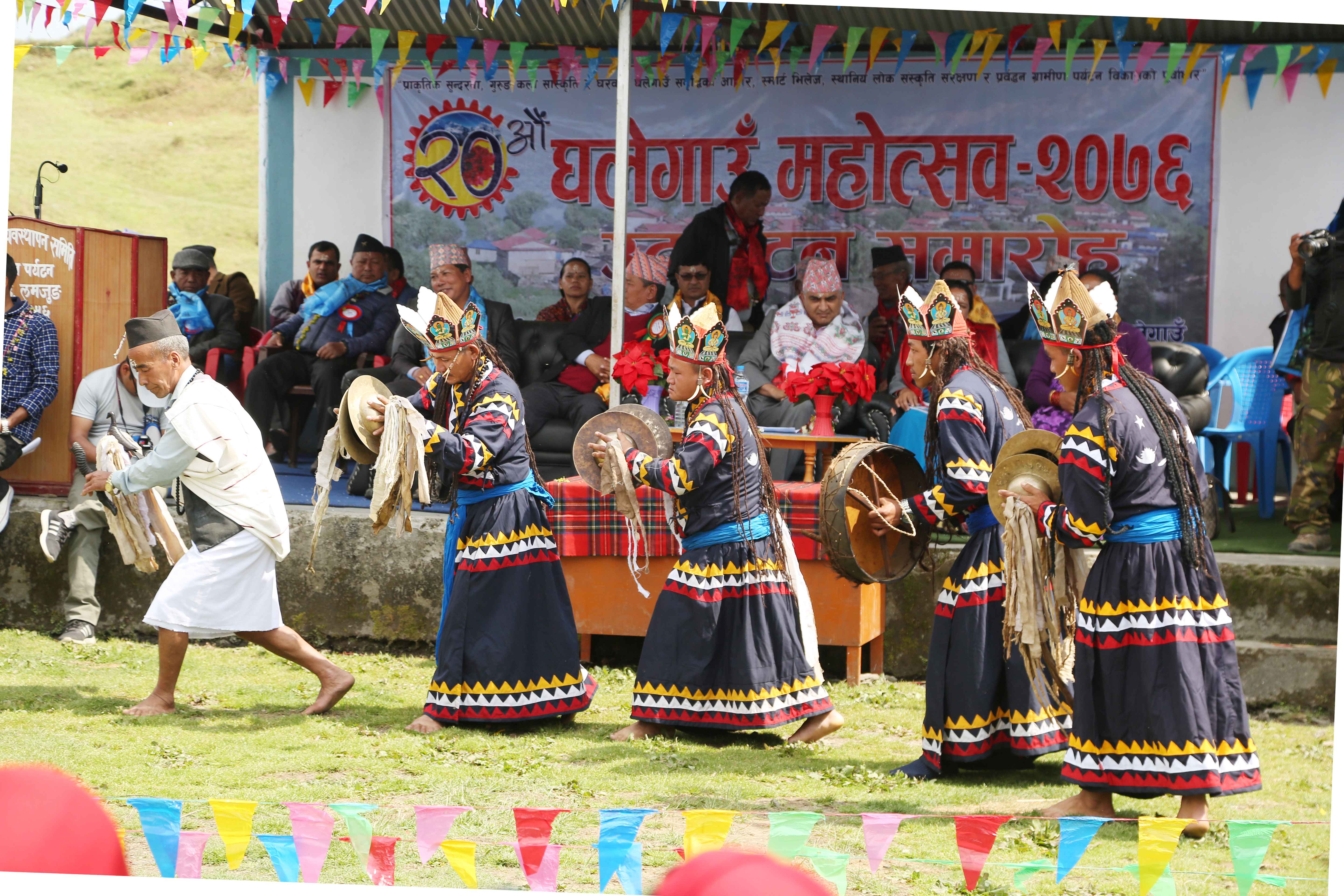
Pachyu Nach : A traditional dance of the “pachyus” (Gurung priests) performed when a community members dies away from their home. The dance is performed to bring the deceased’s spirit safely home and then to send them to heaven.
Ghyabre Nach: A traditional dance of the “ghyabres” (Gurung priests) performed after the death and funeral ritual (Arghaun) of a community member. This dance is performed to safely transport the spirit of the deceased to heaven.
Youth Club Dance: A traditional dance performed by the village youth with musical instruments.
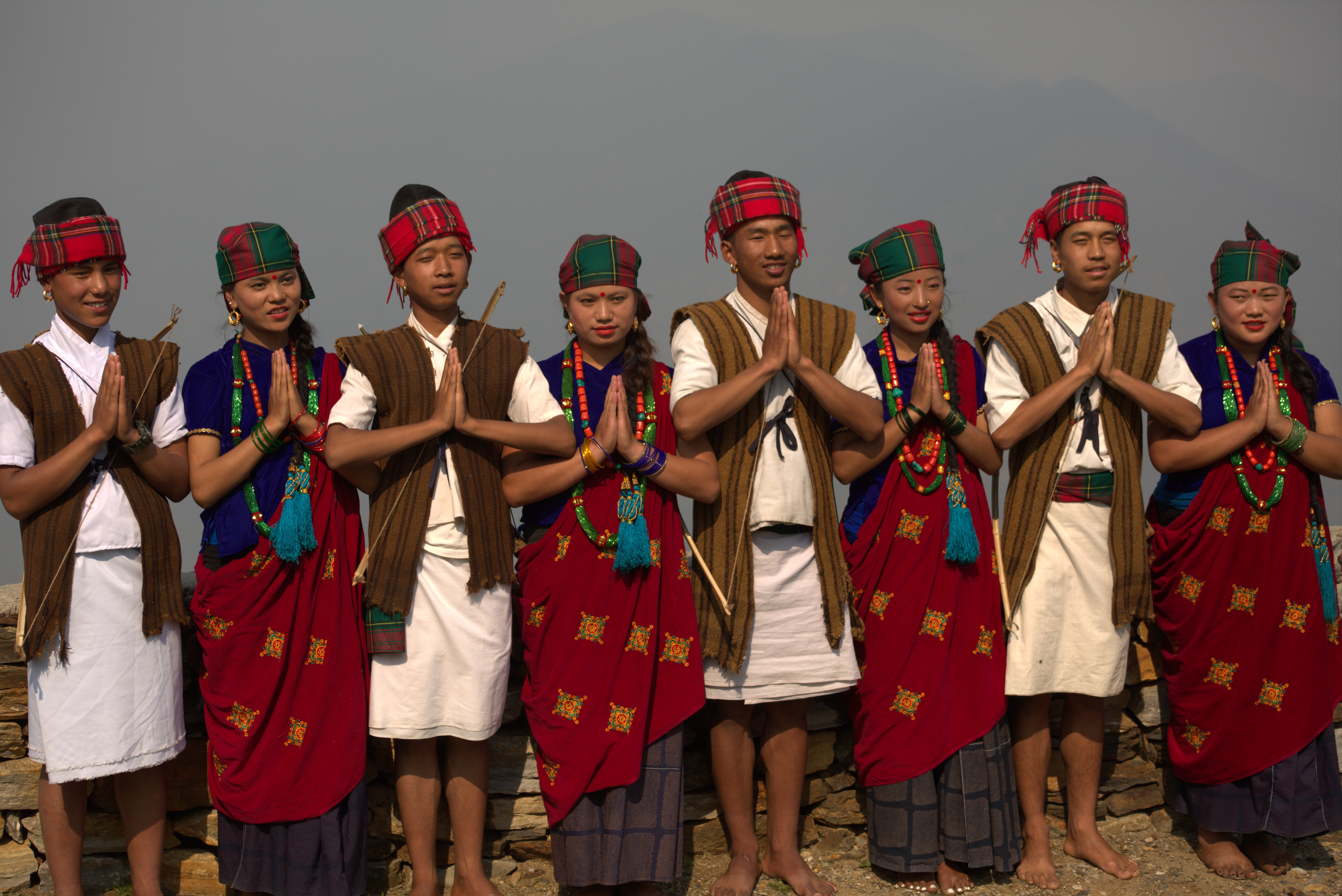
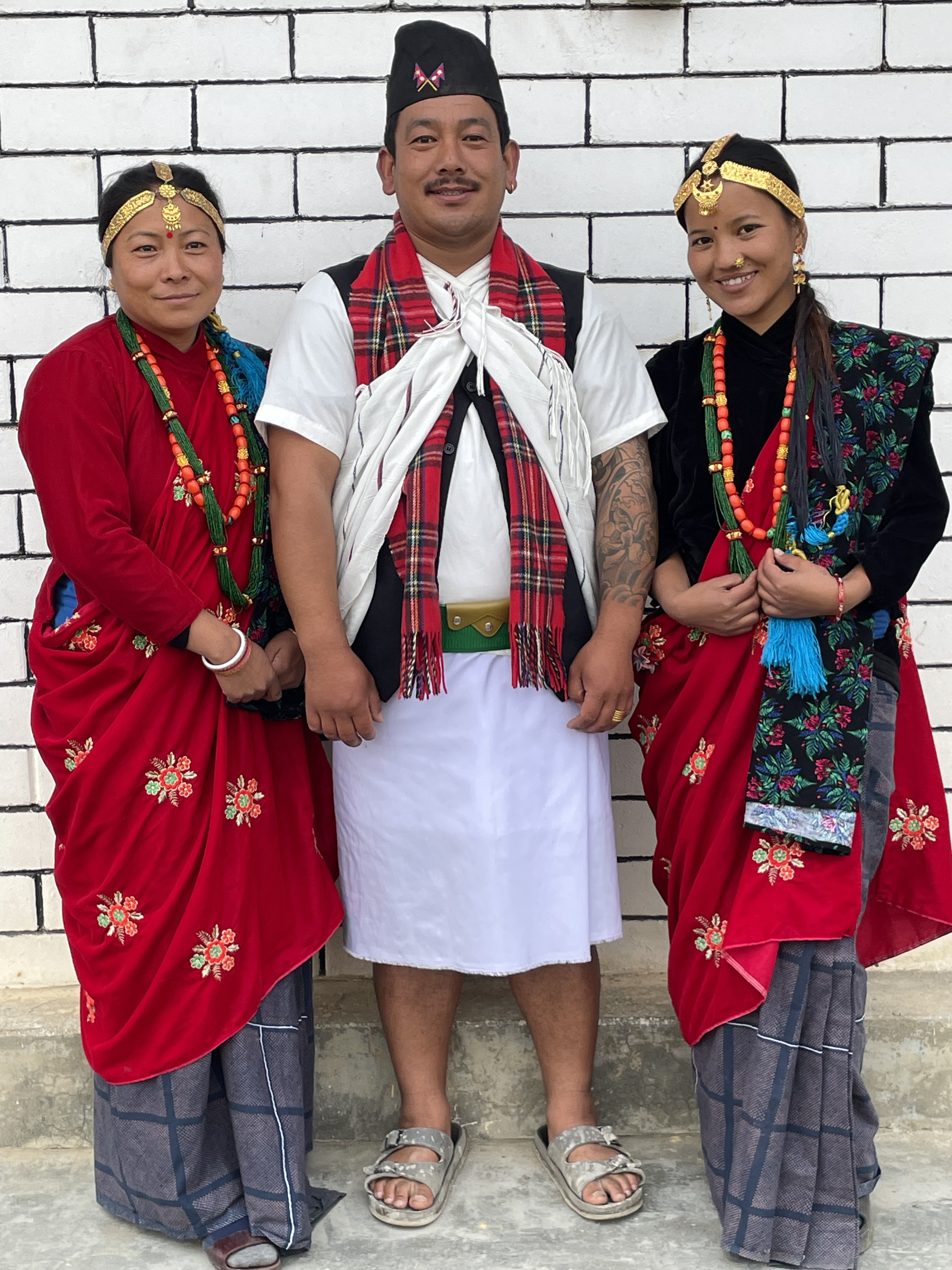
Gurung Dress
Gurung traditional dress is a symbol of the community's history and identity. The Mother’s Group in Ghalegaun provides Gurung Dress to rent in a small shop in the buspark. Dress is available for both women and men and is very popular.
Women’s Dress
Cholo: red or black blouse with ties at the top and bottom
Ghalek: red velvet shawl worn from the shoulder to the opposite waist
Guniyo: pleated skirt Tikis: black triangle used to hold the guniyo
Patuki: blue cloth wrapped on top of tikis
Pachheuri: head scarf Sirbandi: gold head ornament
Phuli: nose stud Lurguna: earrings
Piru mala:red & gold necklace Naugedi: green beads
Cura: bracelets/bangles Dori: long braid for hair
Men’s Dress
Bhangra: white cotton or sisnu cloth wrapped diagonally, used to carry items to field
Bhoto: white shirt Ascot: black vest
Kachhad: short white kilt Peti: red and green belt
Galbandi: red scarf Dhaka Topi: black hat with knife insignia
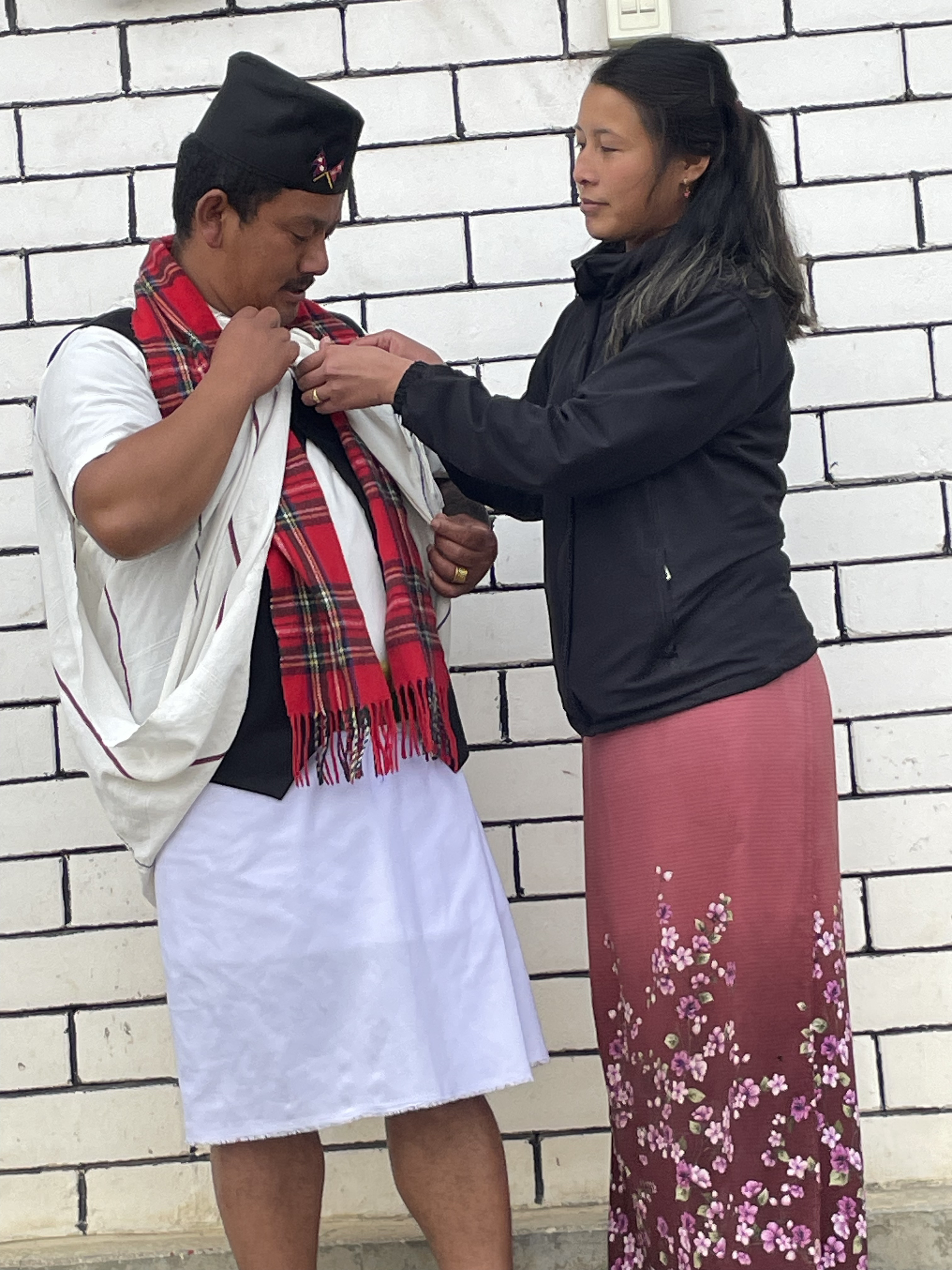
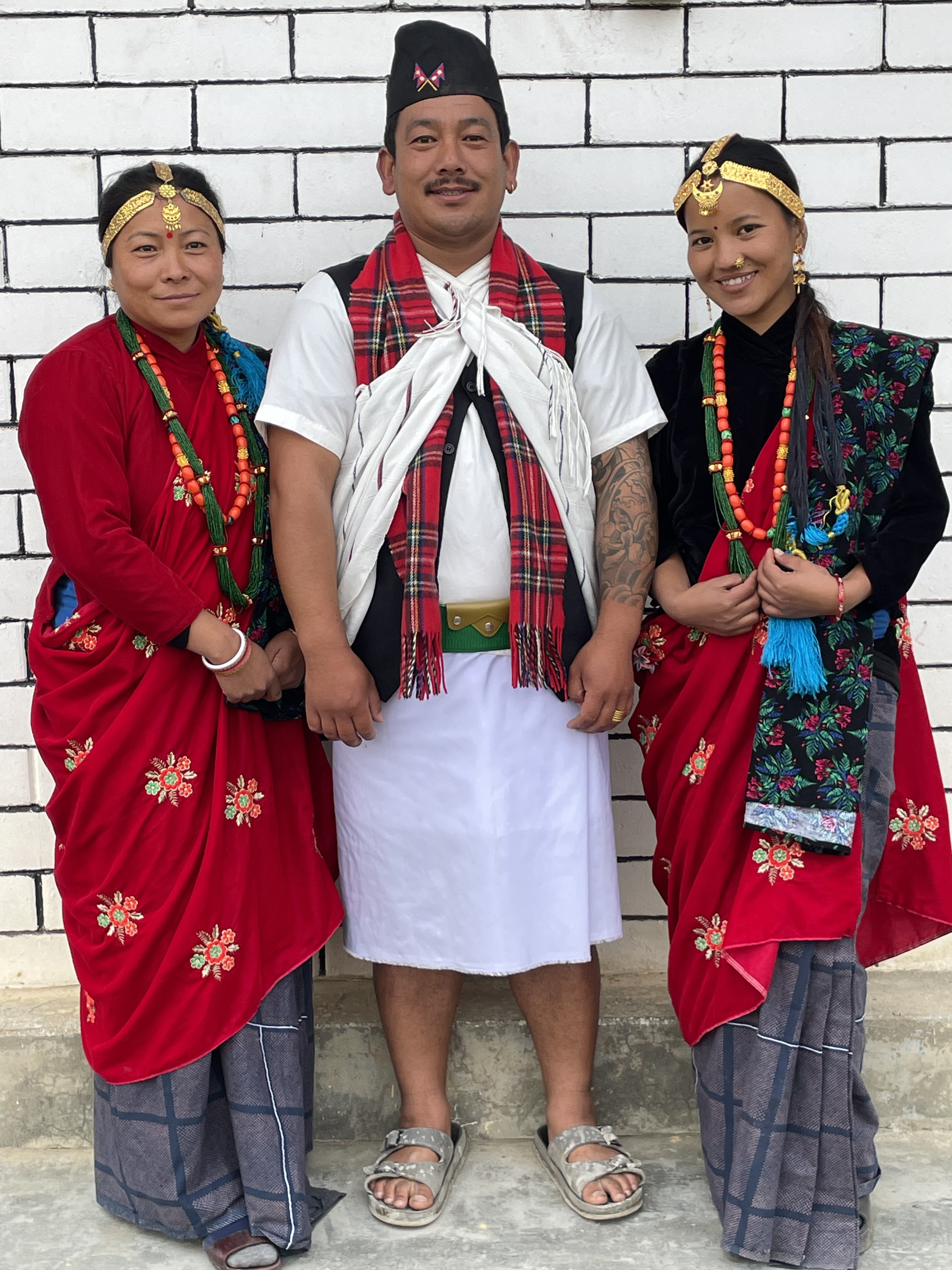
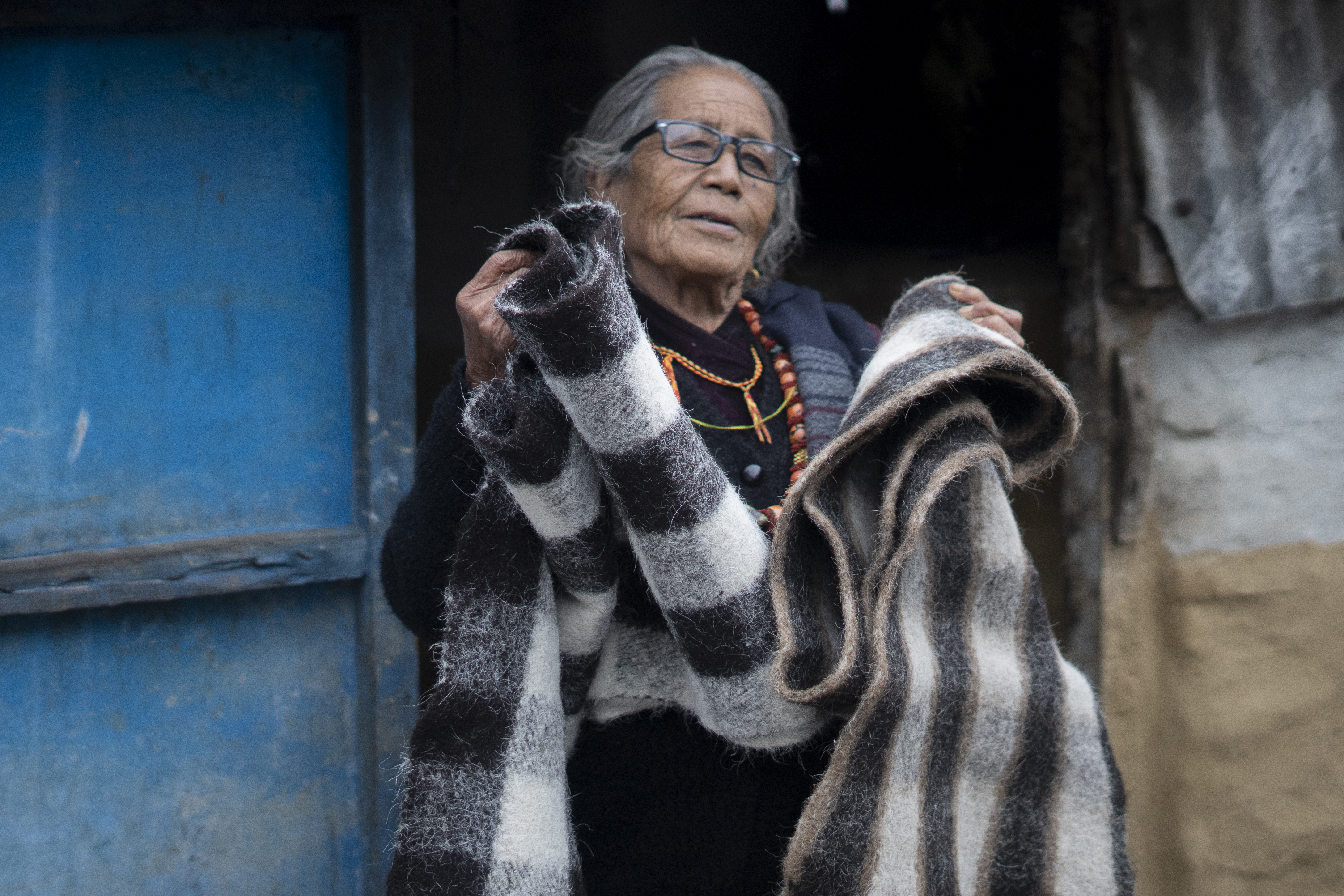
Woven Products and Handicrafts
Many household and farming items are still made by hand by villagers. Men weave bamboo mats and baskets. Wool from sheep herds is shorn, meticulously processed by hand and spun to weave floor rugs (rari) and woolen capes (bokhu).
Below links are the local products and their making processes.
Rari/Bokhu pdf, Spinning in the Himalayas, Part 1 and Spinning in the Himalayas, Part 2
